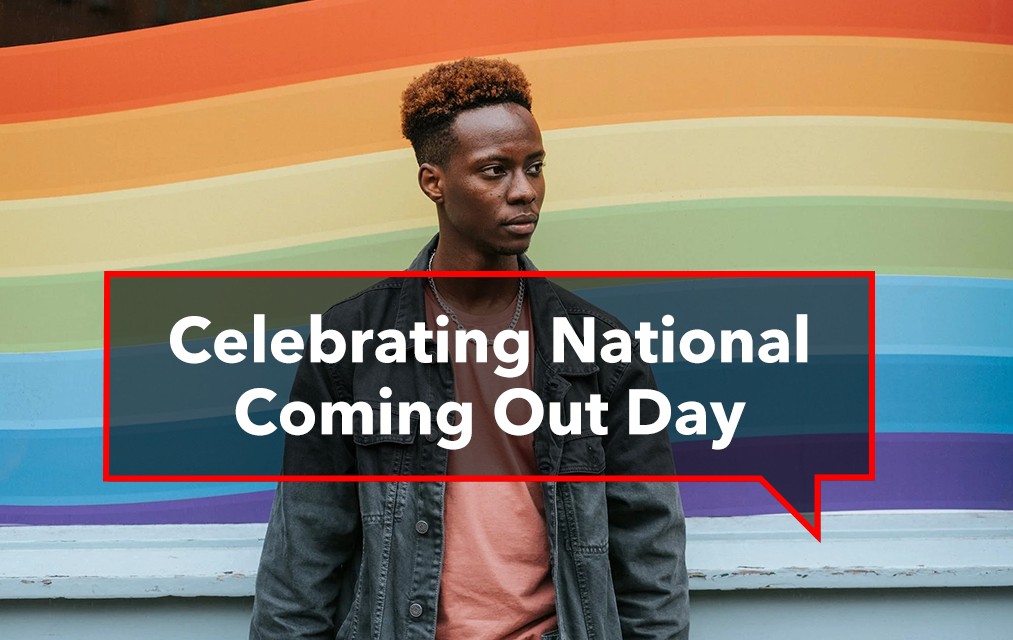Celebrating National Coming Out Day

National Coming Out Day was October 11.
It was first celebrated in 1988 to mark the first anniversary of the National March for Lesbian and Gay Rights in Washington. Later, the observance commemorated people of the LGBTQ+ community who came out and decided to live freely.
Even though it started in America, National Coming Out Day has become extremely important for LGBTQ+ communities worldwide.
Coming out is an experience unique to every individual. Unlike popular opinion, coming out is also not a one-time event. LGBTQ+ individuals often come out multiple times – in front of their family, friends, relatives, school, and work.
Each situation is different, with a unique set of challenges. Although coming out may have become less challenging than earlier, LGBTQ+ people still experience fear of discrimination and bullying, which makes coming out a daunting experience for some.
Over the last couple of decades, there have been several legal developments. With the recognition and legalization of same-sex marriages in certain parts of the world, anti-discrimination laws, educational reforms, and greater sensitization, we have made progress toward the inclusion and acceptance of the LGBTQ+ community.
However, legal developments don’t mean equality exists; the LGBTQ+ community continues to experience hate, abuse, and attacks due to their sexual identity and orientation. For many individuals, coming out is not an option because it’s too dangerous.
Coming Out: Things To Keep in Mind
Coming out is a big decision regardless of your age. You are still determining how people will react. You might get an idea of their perception of the LGBTQ+ community by how your close friends and family respond to bringing up LGBTQ+ issues.
Sometimes, parents may accept an LGBTQ+ friend but not their child. A reason could be their stereotypes or the worry that their child may experience discrimination. Here are some things to keep in mind while coming out to your loved ones:
1. Believe in Your Gut Feeling
Never feel coerced to come out due to situations or your friends. Coming out is a personal experience, and different people prepare for it at different times. You don’t need to compare your experiences with others. You should consider your decision if there’s a serious risk associated with coming out. You can always contact helplines or organizations working in these areas.
2. Having a Support System
If you don’t have anyone to talk to openly about your identity, you can contact a counselor or an anonymous helpline that can help you smoothen the process. Support systems like these help you decide whether to come out or not. Such support systems are very helpful when the reaction of your loved ones isn’t what you expected.

3. Don’t Get Burdened by Expectations
People may not always react the way you thought they would. You may find that some of your relationships might change or even suffer a temporary setback. Sometimes, they change permanently. Even the closest of your friends and family may need some extra time to absorb the news. As such, they might only sometimes react positively at first.
4. Understanding Coming Out
Coming out is not a one-time event. It’s a life-long process. If you come out and your friends are only sometimes supportive – keep going. You will make new friends, join new companies and find new partners. If you have decided to come out, know that you will have to do this several times.
How Can TBYS Help?
At TBYS, we recognize the importance of coming out for LGBTQ+ individuals. Support and assistance are available for individuals struggling with coming out (or not). Many communities and grassroots organizations work with young people to create a safe space to discuss these issues. Remember that you’re not alone in your journey.
For more information, please get in touch with us, and let’s create a positive and healthy coming-out experience for all LGBTQ+ individuals out there.

